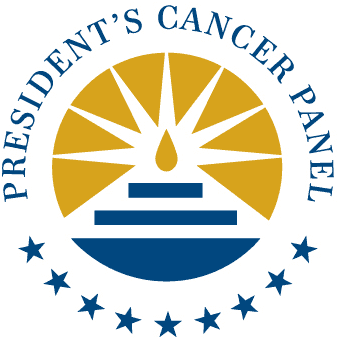President’s Cancer Panel report highlights opportunities to accelerate progress toward the National Cancer Plan
What
A new report from the President’s Cancer Panel offers recommendations in five priority areas to accelerate progress toward implementing the National Cancer Plan and achieving the Biden-Harris Administration’s Cancer MoonshotSM goal of ending cancer as we know it. The report, delivered to President Biden in February 2024, presents findings from the Panel’s initial assessment of the National Cancer Plan, which the Panel endorses as a roadmap for the National Cancer Program.
In its report, the Panel urges continued and new focus in five priority areas to ensure that every person in the United States has equitable access to the best possible resources and care for cancer risk reduction, detection, treatment, and survivorship.
The recommendations in the five priority areas are:
-
Increase investment in biomedical research: Public investments alone are not enough to accelerate progress in cancer research. The private sector must increase its funding for cancer research taking place at academic and other publicly funded institutions.
-
Ensure access to high-quality insurance coverage for all: Lack of health insurance or inadequate coverage can make it hard to access high-quality and timely cancer care. States that have not yet expanded their Medicaid programs must do so.
-
Build a sustainable, robust, and diverse workforce: Oncology workforce shortages and lack of diversity in healthcare teams may impact the quality of cancer care. Public and private investments are needed to support and retain a robust and diverse oncology workforce.
-
Promote dynamic and sustainable community engagement: Patient and community engagement are essential to building trust, understanding and addressing community needs, and improving health outcomes. Policies and sustainable funding must support this engagement.
-
Prioritize data sharing and integration to accelerate research: Data drives progress in cancer care and research. Additional efforts are required to improve interoperability, optimize the usability and availability of data, and promote the transparency of clinical trial results.
The National Cancer Plan was released in 2023 by the U.S. Department of Health and Human Services (HHS) with leadership from then-National Cancer Institute (NCI) Director Dr. Monica Bertagnolli. It provides a comprehensive framework for collaboration to guide the nation’s efforts against cancer. Less than a year after the Plan’s release, the Panel began monitoring its implementation by gathering information about progress toward the Plan’s goals. The Panel used input from a stakeholder meeting held in September 2023 and public contributions received via email and social media to identify challenges in implementing the Plan and opportunities to accelerate progress against cancer.
Report
Who
About the President’s Cancer Panel
The President’s Cancer Panel consists of three members appointed by the President of the United States. Current members are Drs. Elizabeth Jaffee (Chair), Mitchel Berger, and Carol Brown. The Panel, established by the National Cancer Act of 1971, is a federal advisory committee charged with monitoring the National Cancer Program and reporting to the President on any barriers to its execution. The Panel does not conduct scientific research, and while administrative support for the Panel is provided by the National Cancer Institute (NCI) at the National Institutes of Health (NIH) under the U.S. Department of Health and Human Services (HHS), its conclusions and recommendations should not be inferred as policy or perspectives of the NCI, NIH, or HHS.
About the National Cancer Program
The National Cancer Program represents all those affected by cancer and those who can address the burden of cancer to create a better future. More information about the National Cancer Program and the Panel’s role can be found at https://PresCancerPanel.cancer.gov/.

